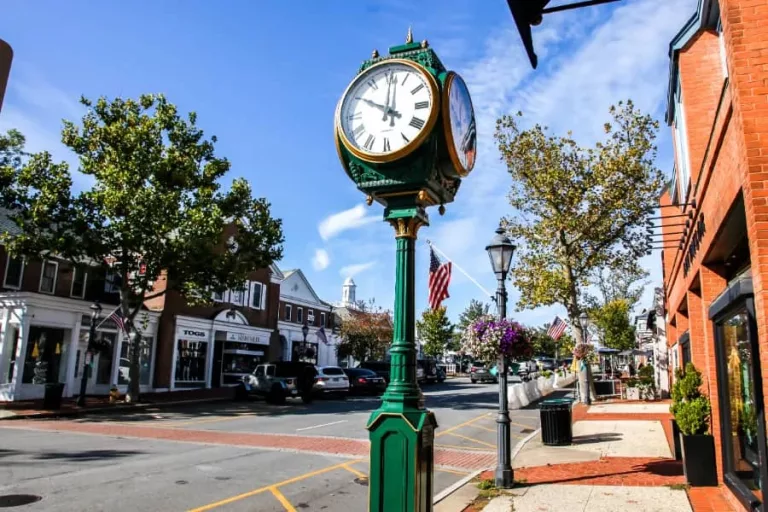
Basic Information
Full Name: Lucy Dathan
Office Sought: State Representative, 142nd House District
Contact Information (Email, Phone, Website):lucydathan@gmail.com, 203-442-1610, lucy2024.com
General Questions
Top Three Priorities if Elected
1. Increasing Access to Mental Health Programs – There is a mental health crisis in our state and we need to ensure that every generation, especially our youth, has access to effective support services. There are so many early intervention and prevention programs available that can help at risk individuals and reduce the need for crisis interventions. Increasing awareness and access to these programs is my priority.
2. Ensuring our State Budget is Fiscally Sustainable – As a finance professional and fiscal moderate, I believe in ensuring that our spending is sustainable and can weather economic downturns. Connecticut has turned the corner on decades of fiscal instability and has saved $3.7B into the Rainy-Day Fund. This ensures that in a financial downturn, we can continue to fund our general fund activities without having to increase taxes. I am also proud that we have paid an additional $7.6B in pension contributions since 2020 which saves our state approximately $440M annually in debt servicing costs. Prioritizing investment in our safety net programs and in the workforce we rely on to provide these services ensures that our most at risk individuals do not fall through the cracks.
3. Expanding Environmental Protection Measures – As Vice Chair of the Appropriations Committee I have been directly involved in funding environmental initiatives and Medicaid. Two issues I am most energized about are clean air and waste management. Our taxpayers bear the consequences of air pollution and respiratory health issues with Medicaid costs. Per the Lung Association, more than 370K Connecticut residents have asthma. Fairfield County has been rated the 24th worst county for air pollution in the country. In Norwalk, air pollution contributes to 70 new childhood asthma cases annually. Vehicle emissions are the greatest contributor to pollution and a key obstacle to achieving carbon neutrality. Additionally, we must develop new waste management systems following the MIRA plant’s closure, and evaluate investments that address compostable waste, especially food, as this is a significant portion of incinerated garbage, further contributing to air pollution. We can make a significant contribution to our planet’s sustainable future by prioritizing conservation and clean air.
Professional, Volunteer, or Public Service Experience
Over my six years as a State Legislator I have continually benefitted from my professional experience as a CFO and in Corporate Finance. In these roles, I devised strategies for venture-backed technology companies that fostered collaboration across all levels of management and investors. As Vice Chair of Appropriations between 2020-22, I was able to deeply immerse myself in the budget process which helped in my leadership role on the Human Services Committee that has cognizance over all matters relating to Medicaid and other safety net policies that comprises about 30% of our state budget. I am also Co-Chair of the Legislature’s Regulation Review Committee which works strictly on a bipartisan basis, meaning I have to collaborate closely with my Senate Republican Co-Chair to ensure state agencies implement laws within the original legislative intent.
Policy Questions
Local Control: How do you propose to protect your district’s control over zoning decisions?
The lack of affordable housing across our State is a significant economic issue. Municipalities cannot continue to grow and provide key services needed by residents – like quality schools and roads – in a stagnant state without economic growth. I agree with Governor Lamont that we need more taxpayers and not more taxes. Connecticut lacks an estimated 87K units of both affordable and low-income housing – and much of this is needed around our cities. Businesses are trying to attract the best talent but many find the affordable workforce housing deficiency a roadblock to achieve this. Statute 8-30g has not been as successful at building enough affordable housing as many hoped, but necessary amendments to the law were enacted to help towns maintain local control by achieving a moratorium based on carry-forward surplus units from moratoria to moratoria. Also as important is Statute 8-30j, which requires towns to approve affordable housing plans every 5 years,creating a roadmap to the 10% target that governs the moratorium process. I also support Statute 8-2 (the zoning enabling act) which gives the necessary local control to towns’ P&Z commissions for development. I believe we can find a solution to make 8-30g more effective in developing affordable housing while still giving local control to the towns. The housing crisis does not just affect the workforce, but it also affects seniors. In a state that has a large aging population, we need to build more affordable units to support many who are deciding to age in place. Currently, towns do not get equal credit for building senior housing. I commit to proposing a bill in the next legislative session that gives towns equal credit towards their moratorium goals for building affordable units for seniors.
What is your approach to balancing affordable housing needs with preserving the town’s character?
Provided municipalities are achieving their affordable housing goals and achieving a moratorium, then decisions around character should remain with local Planning & Zoning committees.
Utilities: What steps have you taken/will you take to address rising costs of electricity, natural gas, and water?
In talking to Democrat and Republican colleagues, everyone agrees that addressing the rising costs of utilities is a priority. Some have suggested that this issue deserves a special legislative session before the regular session starts in Jan 2025. I have a lot of concerns about this – in my opinion, this is like throwing spaghetti at a wall and seeing what sticks – as I believe their motivation is more about creating the appearance of action to voters in advance of the election. My perspective is that we shouldn’t create policy without the proper vetting process, having public hearings and taking the time to evaluate all the potential outcomes of policy proposals. The moderate Democrat Caucus of which I am a member has been spending months researching these issues and meeting with a variety of industry experts to come up with ideas for a bill to be introduced in the 2025 legislative session to address rising costs in a sustainable, long-term way. Our proposals will prioritize the needs of the public benefit and will clarify which policies should be paid for out of the general fund vs ratepayers.
Please explain your stand on the current situation with Aquarion.
I have some concerns with the proposed sale of Aquarion by Eversource. I understand that the potential acquirer, the Regional Water Authority (RWA) is a government-run organization that is not subject to oversight by the Public Utility Regulatory Authority (PURA) which regulates rates, economics, and infrastructure investment. This could potentially mean a large increase in water rates for existing customers as presently the RWA customer in New Haven and surrounding towns pays some 23% more for water than the Aquarion customer. And because this would not be overseen by PURA, there is a risk that the premium paid for the acquisition could be passed on to the rate payer.
Economy: How will you address the economic challenges posed by inflation?
Inflation is making life more expensive for everyone, and it seems that prices continue to outpace the growth in average wages. We have been working as a legislature to grow the economy in Connecticut by controlling spending and not increasing taxes, including the pay down of over $7.6B of pension debt which saves $440M of debt servicing annually. This strategy has also improved Connecticut’s bond rating, which has lowered the cost of borrowing for future capital projects. For me, it’s important that we continue to make fiscally responsible budgets, manage spending growth, and address our long-term liabilities to reduce the annual debt service payments. I will also be focused on addressing the rising energy costs as discussed above.
What legislative measures will you support to ease the financial burden on households and businesses in your district?
I am very proud that recent years of good governance and sound budgets have allowed us to implement the largest tax cut in Connecticut history: saving taxpayers $1B over 2022 and 2023, benefitting over 90% of Connecticut families. In addition, we have delivered a series of financial measures that benefit our residents:
$300 property tax credit for middle class families
Reduced or eliminated state taxes on retirement income
Expanded the small business loan program in lower-income communities, which enables more out-of-state businesses to grow into CT.
I commit to continuing to support similar ways to reduce the financial burdens on our residents and businesses.
Supermajority: What does having a supermajority in the Connecticut legislature mean to you and to your district?
District 142 is – and will continue to be – well represented within the Democratic majority of the Connecticut Legislature. I sit within the moderate Democratic caucus – the “Blue Dogs”. We are a group of fiscal moderates who have influence in shaping legislation that benefits residents while ensuring the sustainability of state finances. People call Connecticut ‘the land of steady habits’ but I think we should say that it is the land of incremental change: let’s deliver more progressive and beneficial policies in a fiscally responsible manner.
Bipartisanship: How would you describe the current political environment in Connecticut?
Over 95% of the bills that pass the CGA have bipartisan support. I am a strong believer that if things are done on a bipartisan basis, there is a better chance of achieving effective solutions that will pass the test of time even through leadership changes. Although the legislature has been controlled by Democrats, the executive branch has been held by both parties in the last 25 years. We have a strong bipartisan women’s caucus, and we work very well together. I am proud to say that in Hartford we do not have the divisive political discourse that we see regularly in D.C.
If elected, how will you contribute to improving the tone of political discourse and foster cooperation among different political viewpoints?
My natural tendency to seek out opposing views and to try and understand alternative viewpoints has been recognized in Hartford in being asked to chair the bi-partisan Regulations Committee. Also, in 2023 I was asked to lead the House Speaker’s Initiative Bill (HB5001), a bipartisan and bicameral effort to fund programs for people in the Intellectual and Developmental Disabilities community who, due to funding issues, had in most cases been waiting for years to receive the support services to which they were legally entitled.
Your View: What should we have asked that we did not? None



